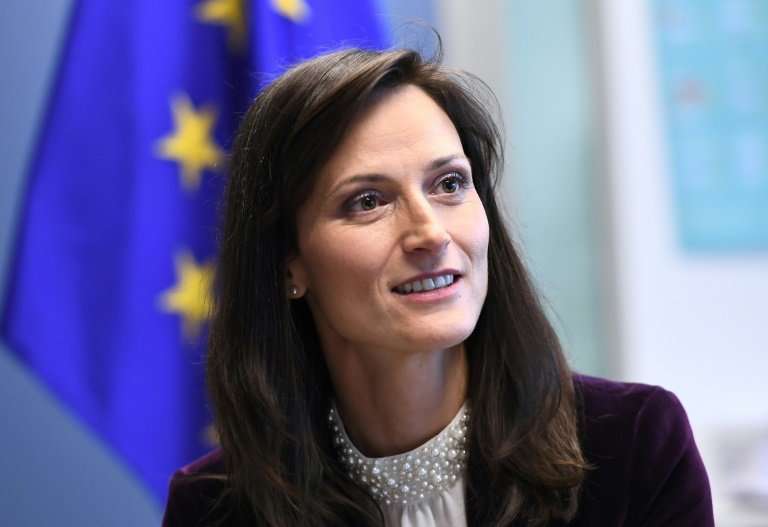Divisions over EU's focus on tech groups to stop 'fake news'

Divisions emerged Tuesday after experts commissioned by the EU Commission called on tech groups and social media firms to sign up to a voluntary code of conduct for tackling "fake news".
Consumer groups and European legislators called for a tougher stance than the one set out by the experts on Monday, but the industry rejected using regulation to tackle the problem.
The report by the so-called High-Level Expert Group on Fake News and Disinformation, which includes a representative from AFP, said online platforms should be more transparent about the way news is shared.
Mariya Gabriel, European Commissioner for the digital single market and society, said the experts' views would "help us put forward a number of options to better address the risks posed by disinformation spread online".
Brussels will set out its first strategy outlines next month.
Tech firms like Facebook and Google have faced growing criticism for failing to tackle both "fake news" and hate speech.
The report said online firms should sign up to the code of conduct to "ensure transparency by explaining how algorithms select the news put forward".
It said they should also work with European news outlets to "improve the visibility of reliable, trustworthy news".
The fake news group also argued against the use of the term fake news—saying it should instead be referred to as "disinformation" as it sometimes blends fake information with fact.
The software and browser firm Mozilla on Tuesday rejected any regulation.
"We believe that the complex and multi-factor nature of the phenomenon—in terms of its causes and impact—make one-size-fits-all regulatory solutions inappropriate," it said.
But Marietje Schaake, a leading liberal member of the European Parliament, said the expert report had a "major omission".
"It does not fully address the key catalyst of the dissemination of disinformation, which are the in-transparent algorithms and the online advertising models that dominate most technology platforms," Schaake said in a statement.
"These models inherently push sensational content on newsfeeds that is often false, inaccurate, or misleading."
The European Consumer Organisation (BEUC) agreed that the report did not tackle the "root causes" of the problem.
"Platforms such as Google or Facebook massively benefit from users reading and sharing fake news articles which contain advertisements. But this expert group choose to ignore this business model," BEUC director general Monique Goyens said in a statement.
Gabriel told AFP in a interview last week that Europe must "redouble" its efforts to tackle the phenomenon in the run-up to elections, as fears grow about Russian meddling in votes across the continent.
© 2018 AFP




















